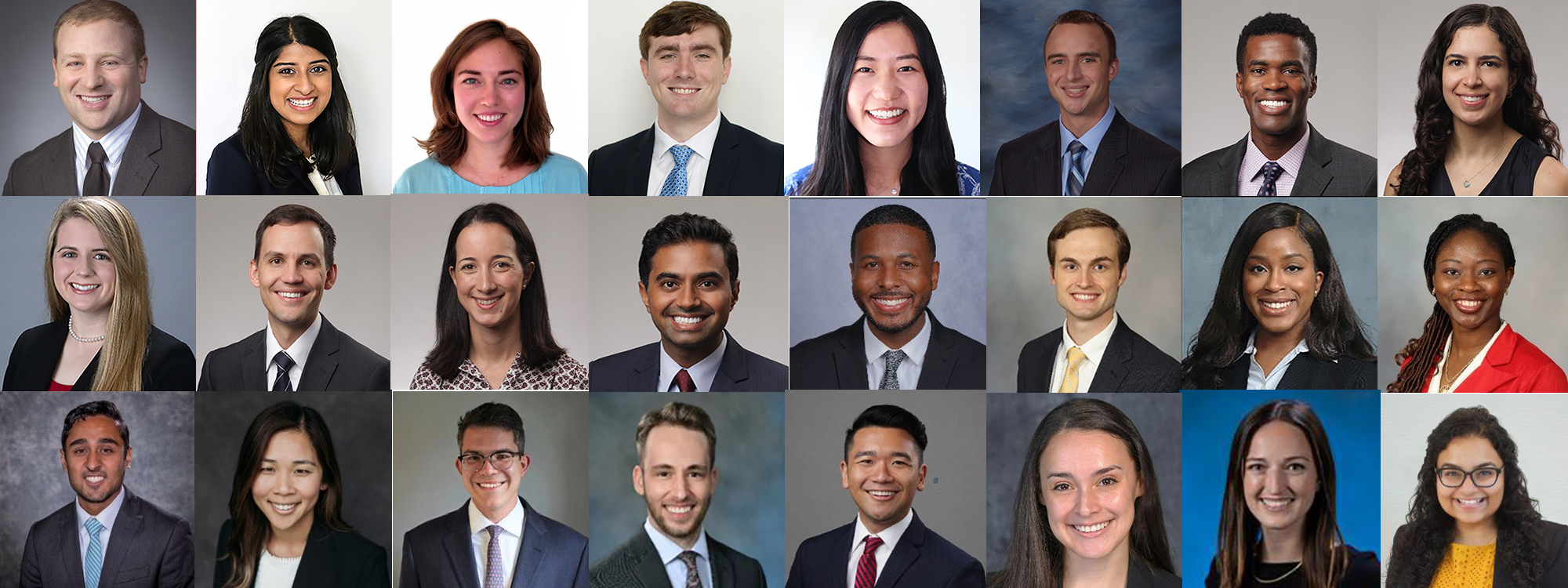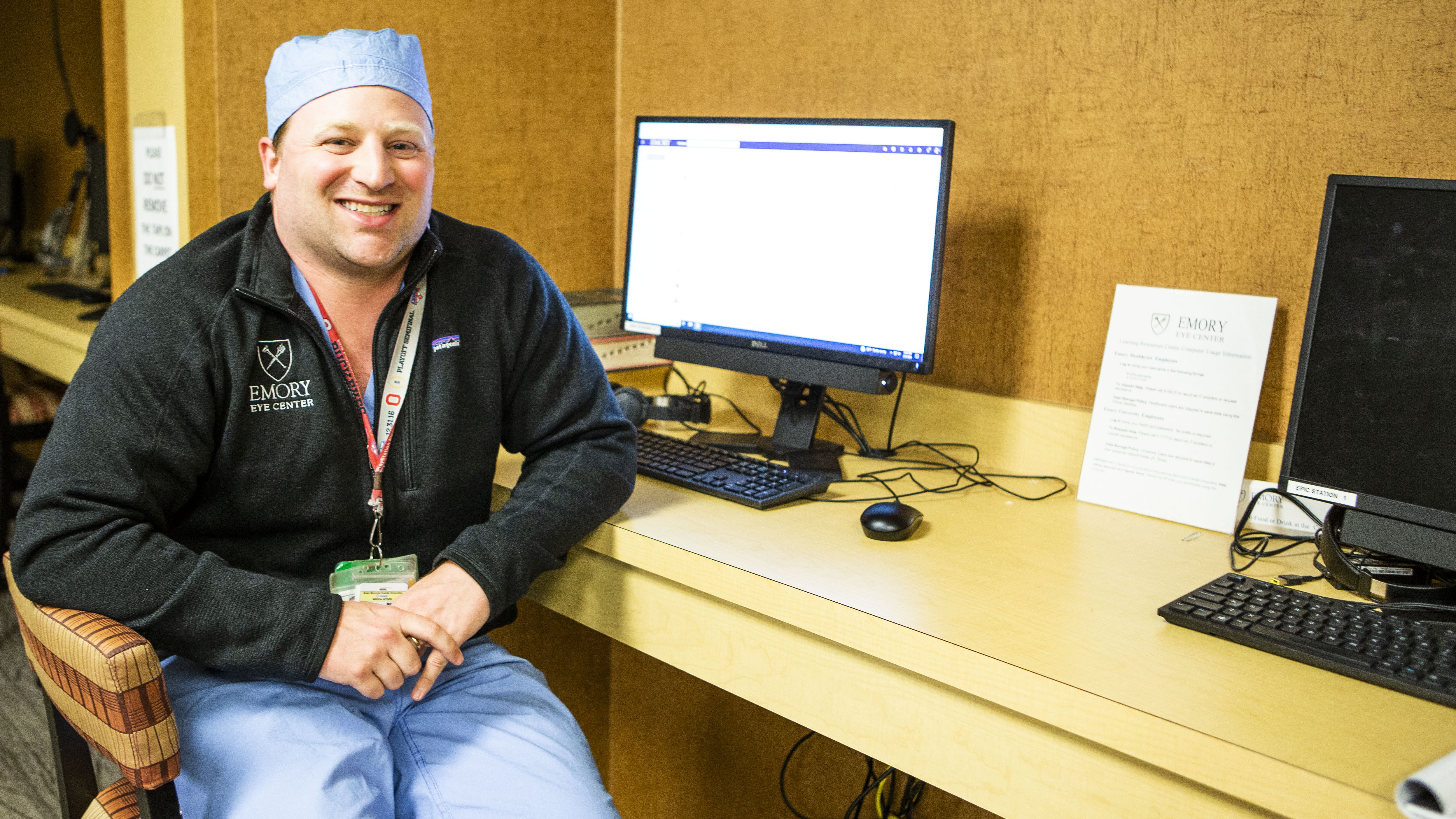
Thank-A-Resident Day – February 23 – may not jump off your calendar. If the experience of the Emory Eye Center is any indicator, that’s a mistake.
The 24 men and women who make up the active corps of ophthalmological residents in the Emory Clinic play a huge role – supporting more than 100,000 annual patient visits while also deepening their expertise in comprehensive and subspecialty ophthalmic care. If you are not sure who these whip-smart, hard-working clinicians are, we’re not surprised. They are rarely seen outside clinic.
“If you see any of our residents, you should take a moment to thank them,” said residency education director Jeremy Jones, MD. “We knew when we accepted them that they had great potential, but we are continually struck by the depth and energy that they bring to their work.”
To mark Thank-A-Resident Day 2024, we took a moment to talk with fourth-year chief resident, Timothy Grosel – the lucky clinician who is putting in long days and late nights learning while also serving as a middle manager for his fellow doctors-in-training.
Why did you decide to go into medicine?
One of my earliest memories is of my father, [John Grossel, MD] who was a radiology resident when I really small. When he came home from the hospital [Cleveland Clinic], I was always begging him to go out and push me on the swingset or ride bikes. And my memory is that he seemed to be happy to spend time with me, happy to have something to distract him from work, but not stressed or too tired.
When it came time for me to consider what I wanted to study, I was good in science and I liked the idea of helping people. My father and my uncle [both radiologists] wanted me to be aware of how hard it is, to not pursue medicine just because it offers a certain lifestyle. They both told me that I should be passionate about the profession because medical school and residency are big commitments.
There’s a lot of ways to help people through scientific research, where you can improve health through discoveries you make over time. But I wanted something where I could see tangible results. Medicine offered that.
Why did you decide to go into ophthalmology?
In high school, I shadowed an ophthalmologist in my hometown. What I saw was that ophthalmology was elegant and efficient. The physics of the way the eye refracts light interested me. The doctor could address a problem with a procedure that took five to 10 minutes, and the patient was able to see well the very next day.
Surgery is a big part of ophthalmology, and I was drawn to that. I wanted to see an XXXx and be able to correct it with surgery. And I know that ophthalmologists do a lot of cataract surgeries – a procedure that changes lives. I knew I’d be happy doing that.
I also wanted a career where I’d have the time and flexibility to have more patient interaction. That describes ophthalmology.
What about ophthalmic residency has challenged or surprised you the most?
I think the biggest challenge was the first year. You are on-call for the first time. That’s when I realized that when I start to feel uncomfortable, I am going to learn the most. And I did.
At the hospital where I was, we get a lot of eyelid lacerations. The first time I had one was tough. The [attending physician] showed me how to clean it, numb it, and suture it. And the next time, I got it.
It’s a balancing act between what’s best for the patient and how hard you can push yourself. There are upper-level doctors who can help you, but you want to push yourself to learn the procedures, the diagnoses, and how to talk to the families.
The most surprising part of residency is how close you get with your fellow residents. I was surprised to find that some of them are my closest friends.
What career would you have chosen if not ophthalmic medicine?
[Pauses for a time to think]
I’d be a high school biology teacher and probably coach the baseball or basketball team. High school is a pivotal time. There’s a lot of growth and development. You can make a big difference in someone’s life.
What’s next for you?
After graduation, I will be moving back to Ohio where I’ll be practicing comprehensive ophthalmology at the Cleveland Clinic’s Cole Eye Institute.
-Kathleen E. Moore


